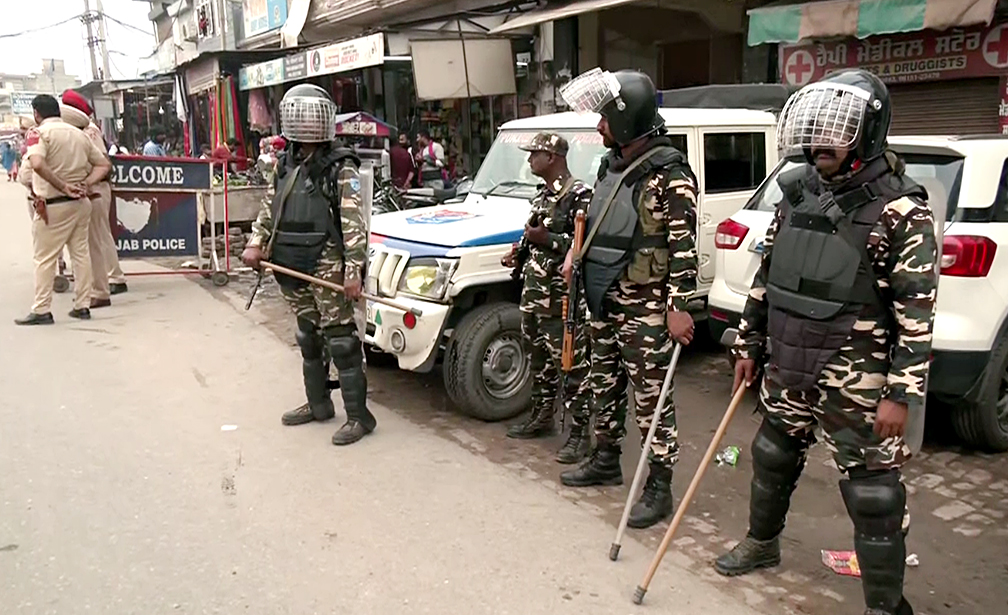According to experts, many people residing in western nations are not aware of the ground reality in Punjab.
New Delhi: After the crackdown on Amritpal Singh and his supporters, a series of anti-India protests were seen in the United States, United Kingdom, Australia, and Canada. Vandalization of Indian missions in the UK and the US had also taken place.
Incidents like the heckling and attack of a PTI Journalist Lalit Jha in Washington while covering a protest outside the Indian embassy and the vandalization of Mahatma Gandhi’s statue at a university campus in Burnaby, Canada, were seen last week.
Behind all these incidents, the radicalized diaspora residing in the West has its hands. The West is home to millions of Indians and the Punjabi population forms a sizable amount. In the recent past, the mass migration of Indian youths from Punjab to western nations has increased the number of Indians in the West. But after the crackdown on Amritpal Singh, a new face of extremism in the diaspora was seen. The Indian authorities have summoned UK and Canadian envoys in the past to discuss these happenings.
A big question that remains here is the reasons behind extremism and aggression in overseas citizens and expatriates. The Sunday Guardian talked with various people residing abroad, as well as experts to know the reasons. According to experts, many Sikhs residing in western nations are not aware of the ground reality in Punjab. “Many extremists in the 1980s absconded Canada, the UK, and the US amid the Black days of Punjab and now they have settled there, but still hate for India persists in them and they have carried this to the next generation, which is born and brought up in the west and is not aware of the ground reality,” said Jaspal Singh, senior journalist and analyst, who has covered Punjab in 1980s.
But in recent years, a drop has also been witnessed in the number of extremists in the west. “Many have died owing to their increasing age and their next generation doesn’t have any connection with India and its affairs,” added Singh.
Mandeep Singh, a resident of Ottawa, said that not all Sikhs residing in Canada are extremists, there is a very small number of radicals and they carry on this mission to show their “supremacy in Gurudwara politics”.
In recent years, India has become a top source for international students in Canada. Last year, 2,26,450 students from India migrated to Canada and students from Punjab form a big chunk of this number.
“When students arrive in Canada, they have sympathy for India, but many are brainwashed by extremists and gurudwaras managed by radicals play an important role in it,” a Canadian resident said.
According to Prof Harpal Singh, former professor of Punjabi at Sikh National College, Banga, Punjab, and currently a fellow at the Indian Institute of Advanced Studies, Shimla, the identity crisis
“Many radicals are struggling to maintain their identity and show their presence and they feel that showing aggressive behaviour against India, will help them maintain their identity, but they are wrong,” said Prof Harpal Singh.
According to experts, free speech and ignorance of western authorities have also helped anti-India sentiment to breed in the US, UK, Australia, and Canada. After India’s stern response to these anti-India incidents, authorities in the UK, the US and Australia have started taking action. One arrest was made in the UK, after the Indian high commission flag vandalization case and recently, three men were arrested in relation to violence that broke out late in January when pro-Khalistani supporters clashed with Indians at Federation Square in Melbourne.

